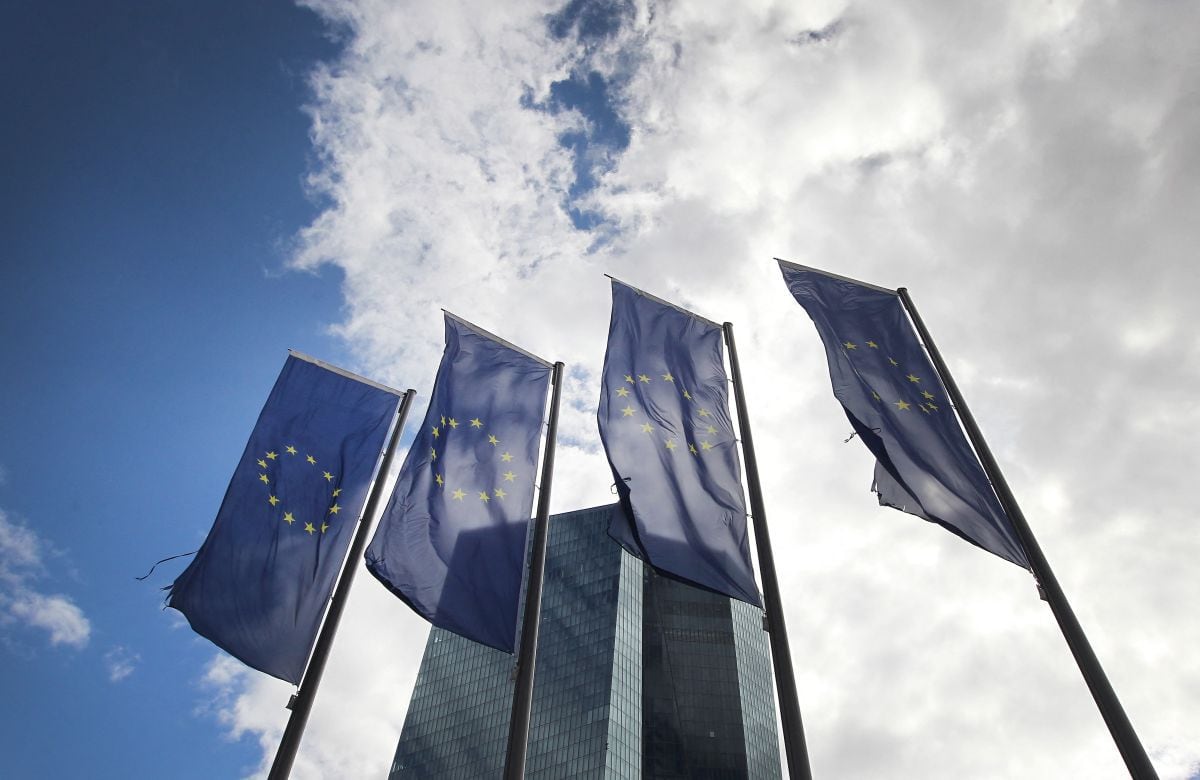
The growth of the companies Euro zone stalled this month as the manufacturing recession deepened, and previously resilient activity in services barely grew, leaving the European Central Bank before a dilemma of monetary politics.
The HCOB Composite Purchasing Managers’ Index (PMI) of the 20 countries sharing the euro, compiled by S&P Global and considered a good indicator of overall economic health, plunged to a five-month low of 50.3 in June. , compared to 52.8 in May.
The reading barely passed the 50 mark that separates growth from contraction and was lower than all forecasts in a Reuters poll, which had predicted a more modest decline, to 52.5.
“This contradicts the recovery of the economy that many expect in the coming months”said Christoph Weil, an economist at Commerzbank. “We see confirmed our assessment that the euro zone economy will contract again in the second half of the year.”
“The up to now 400 basis points of rate hikes of the ECB are holding back the economy more and more”, added.
For the ECB, the data deepens a dilemma.
Inflation, slightly above 6%, is too high and the job market is heating up, suggesting more price pressures ahead as workers enjoy greater bargaining power.
But economic activity is weak and the ECB has clearly failed in its objective of tightening monetary policy enough to contain price pressures without pushing the bloc into recession.
Another problem is that a recession would normally increase unemployment, which would make the bank’s job easier.
However, companies appear to be hoarding the workforce, reminding how difficult it was to rehire workers after the pandemic and offering little relief to the ECB.
Friday’s PMI data only confirms this trend, as companies continued to increase their workforce this month, with the employment index at 54.1, slightly below the 54.6 in May.
For now, monetary policy hawks, who fear inflation more than recession, appear to be in the majority.
“Another quarter of negative GDP growth is not unimaginable, although the current slump remains mild enough that the European Central Bank will not change course on rate hikes,” stated Bert Colijn, economist at ING.
The ECB has de facto promised a rate hike in July and quite a few monetary policy makers have also put another move on the table, up to 4%, for September or October.
Global demand fell for the first time since January. The composite index of new orders fell from 50.3 to 48.3.
The biggest surprise, however, was the PMI index for the services sector, which fell from 55.1 to 52.4 points, also lower than all the forecasts in the Reuters survey, whose average was 54.5 points.
Manufacturing activity has been in decline since July and the slowdown has deepened this month, with the factory PMI falling to 43.6 from 44.8, also below all forecasts in the Reuters survey and its lowest level ever. since May 2020, when the COVID-19 pandemic was taking hold.
Source: Reuters
Source: Gestion
Ricardo is a renowned author and journalist, known for his exceptional writing on top-news stories. He currently works as a writer at the 247 News Agency, where he is known for his ability to deliver breaking news and insightful analysis on the most pressing issues of the day.











